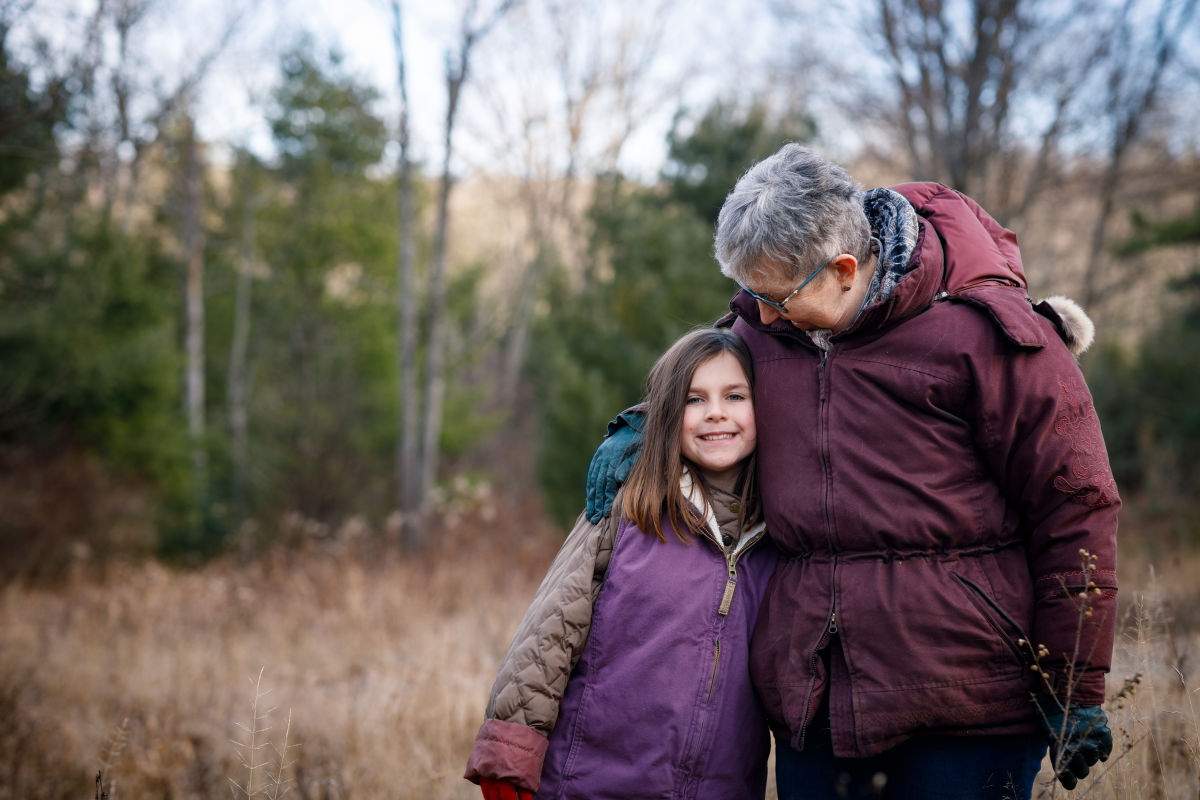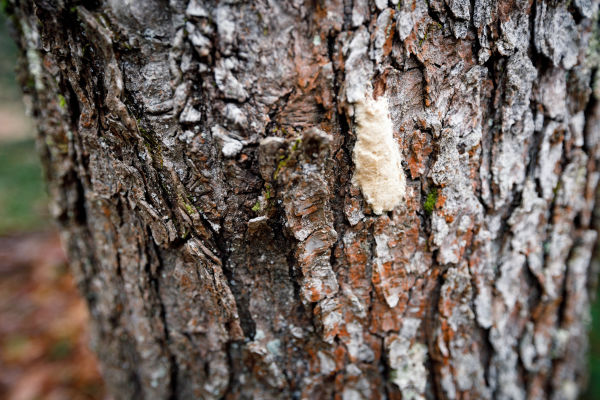Bringing Beavers Back to Bear Town

Susan Benedict stands with her granddaughter on the family's woodland in State College, PA.
Susan Benedict inherited 2,000 acres of forestland near State College, Pennsylvania. The land, known to her family as “Bear Town” given the large number of black bears that occupy the forest, has been in Susan’s family for three generations. Located in the middle of Pennsylvania, it is a zig-zagged shaped tract at the headwaters of the Chesapeake Bay watershed. Stately white oaks, red oaks, and hickories are just some of the species composing their diverse forests with small patches of open grass fields and wildflowers.
When her father took ownership of the property in the 1970’s he had no formal forestry experience, but he was determined to keep the forest healthy. This resulted in mistakes made and lessons learned the hard way. Luckily, their forest was resilient enough to endure the accepted forestry practices of the time—and the heavy logging in the 1990’s—until Susan inherited it when her father passed in 2006.
Susan had made a commitment to her father to upkeep the land, but she did not anticipate the trials that would come shortly after her investment in Bear Town. Sadly, the gypsy moth epidemic wiped out $1.2 million in timber at Bear Town while timber markets also declined in Pennsylvania, resulting in a 50% decrease in timber profits. Susan began researching new forest programs to assist her in restoring her forest.

Evidence of Gypsy Moth (also known as Spongy Moth) on FFCP Landowner Susan Benedict's property in State College, PA.
Read more about Susan’s early landowner experience here.
Since joining the Family Forest Carbon Program (FFCP) in 2019, the program has covered the cost of updating Susan’s forest management plan, and provided additional income to implement the management activities outlined in it.
Developing an updated forest management plan with FFCP has helped Susan meet her personal goals of mature forest preservation. Unlike much of the area surrounding her land which has received funding for management plans aimed at growing young trees, Susan is concerned about the wildlife that relies on mature forests. Luckily, she was eligible for enrollment in the Family Forest Carbon Program’s Growing Mature Forests practice, which helps her preserve and restore this area for black bears, coyotes, and beavers who rely on the understory produced by mature trees.

A beaver swims on Susan Benedict's woodland in State College, PA. The species had not been seen on the property for many years following a time of heavy logging but has recently returned thanks to Susan's dedication to habitat restoration.
As it turns out, the habitat work recommended in Susan’s plan is paying off. Beavers had not been on her family’s property since heavy logging in the 1990’s forced them to relocate. However, in the past few years the beavers have returned to the same meadow that they inhabited decades ago and got straight to work earning their stay. Susan was worried about her water pipes freezing over the winter, but the beavers built a damn that helped raise the water level and protect her water line.
The beavers also cleared out aspen trees and other small vegetation. These cleared, small trees also tend to be root sprouting trees, which will regrow thicker after having been cut back. In the future, Susan plans to plant aspen seedlings in the meadow to boost their food supply and hopefully, increase their population.

Susan and her granddaughter on the family's woodland.
Not only is Susan happy she can pass Bear Town down to her children without the financial burden, but she credits the program for forcing her to have important conversations with family members about the future of the property. Susan says, “My hope is that we can take this from a third-generation Tree Farm to a five-generation Tree Farm. I think it can be done, it's just a matter of finding ways to keep the land sustainable and profitable.”
Do you have species who have relocated from your land? Learn about how FFCP provides resources for forest management practices to support habitat restoration.
The Family Forest Carbon Program is now enrolling landowners with 30 acres or more in Pennsylvania, West Virginia and Vermont, as well as select counties in Maryland, Massachusetts, Michigan, Minnesota, New York and Wisconsin. Click here to check your eligibility today.
Related Articles

April 7, 2025
Forester Spotlight: Mac MacKenzie
We’re excited to spotlight Mac MacKenzie, a dedicated forester with the Family Forest Carbon Program (FFCP) who is passionate about sustainable forestry and conservation.

December 11, 2024
AFF Awarded $5 Million to Support Family Forest Owners
The American Forest Foundation (AFF) announced today that the U.S. Department of Agriculture (USDA) Forest Service has awarded the organization $5 million of Inflation Reduction Act (IRA) funds through its Forest Landowner Support (FLS) program.

November 12, 2024
New White Paper Sets Bar for Quality in Forest Carbon Projects
This week, the American Forest Foundation, a nonprofit organization that empowers family forest owners to create meaningful conservation impact, released its latest white paper, “Catalyzing Forest Carbon Project Quality: Addressing Issues of Integrity in Improved Forest Management Carbon Projects." The paper discusses the common challenges that IFM projects face in the voluntary carbon market and details four key elements the Family Forest Carbon Program (FFCP) focuses on to ensure high quality: additionality, permanence, leakage, and social integrity.